-
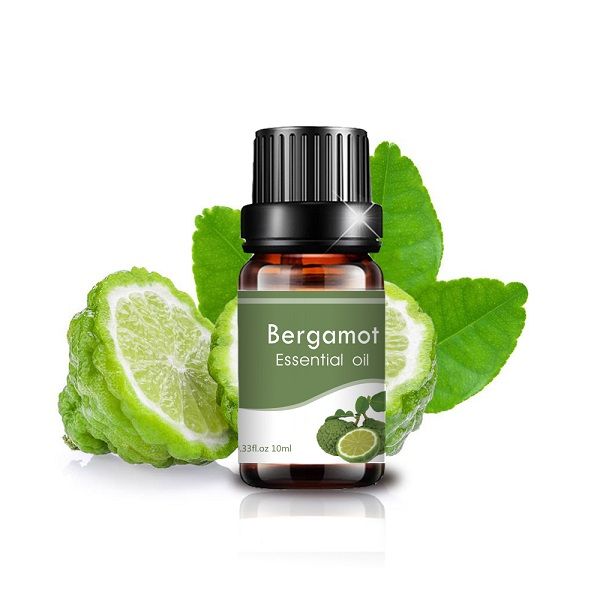
Bergamot essential oil extracted from the peel
Product name: Lavender essential oil
Product Type: 100 % Natural Organic
Application: Aromatherapy Beauty Spa Diffusser
Appearance: liquid
Bottle size: 10ml -
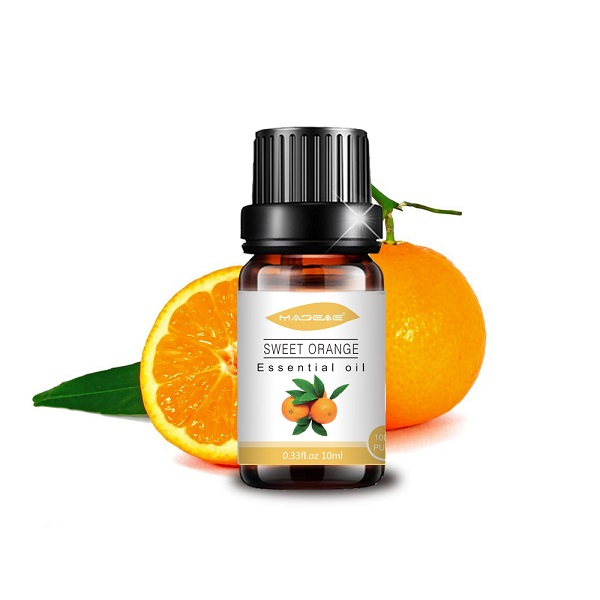
100 % Pure Sweet orange Peel Oil for Diffuser Skin Whitening
Product name: Lavender essential oil
Product Type: 100 % Natural Organic
Application: Aromatherapy Beauty Spa Diffusser
Appearance: liquid
Bottle size: 10ml -
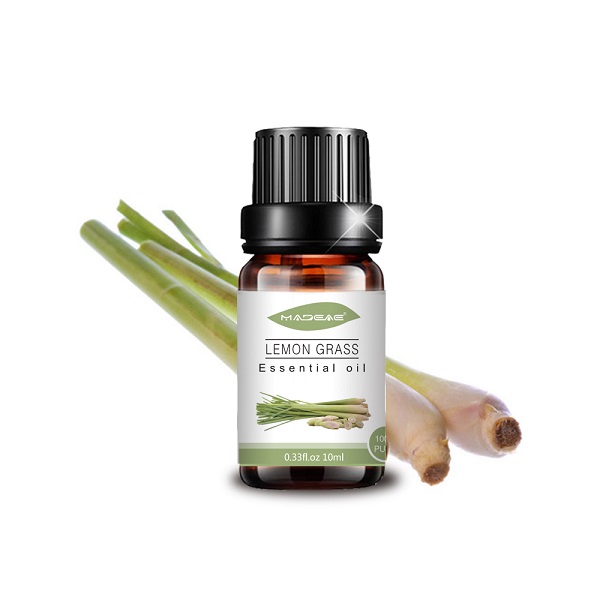
2022 New wholesale Lemongrass Essential Oil Skincare Aroma Oil for Diffuser
Product name: Lavender essential oil
Product Type: 100 % Natural Organic
Application: Aromatherapy Beauty Spa Diffusser
Appearance: liquid
Bottle size: 10ml -
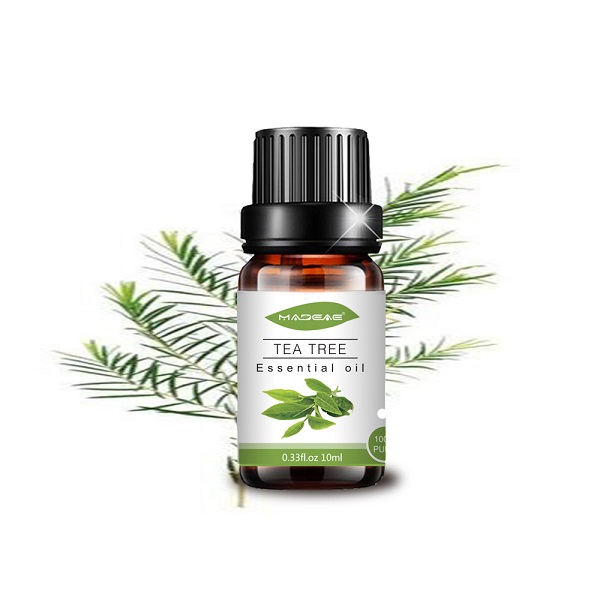
Private label top grade Tea tree essential oil hair growth
Product name: Lavender essential oil
Product Type: 100 % Natural Organic
Application: Aromatherapy Beauty Spa Diffusser
Appearance: liquid
Bottle size: 10ml -
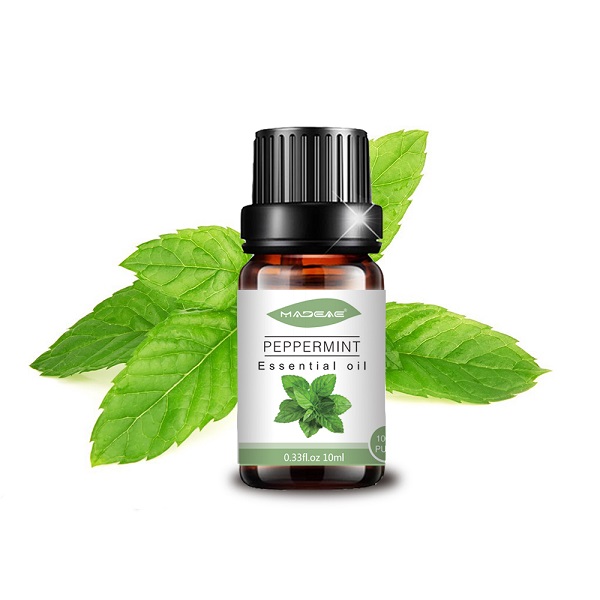
ZX hot selling 100% pure peppermint oil for skin care 10ml
Product name: Lavender essential oil
Product Type: 100 % Natural Organic
Application: Aromatherapy Beauty Spa Diffusser
Appearance: liquid
Bottle size: 10ml -
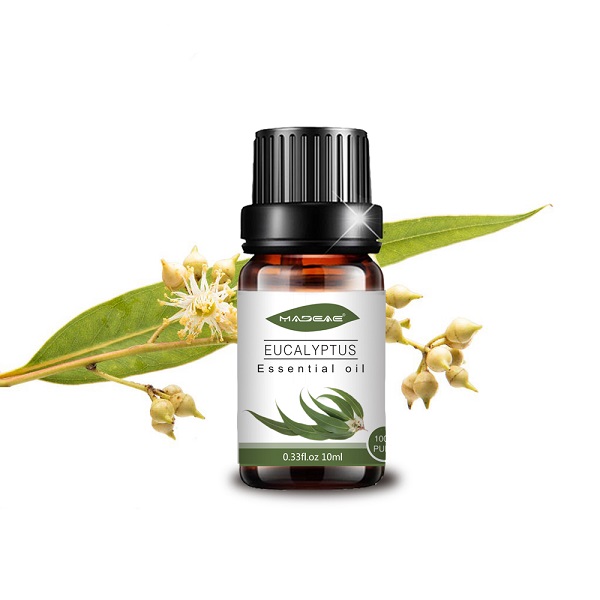
Eucalyptus Essential Oil Factory Wholesale for Aromatherapy Beauty Spa
Product name: Lavender essential oil
Product Type: 100 % Natural Organic
Application: Aromatherapy Beauty Spa Diffusser
Appearance: liquid
Bottle size: 10ml -
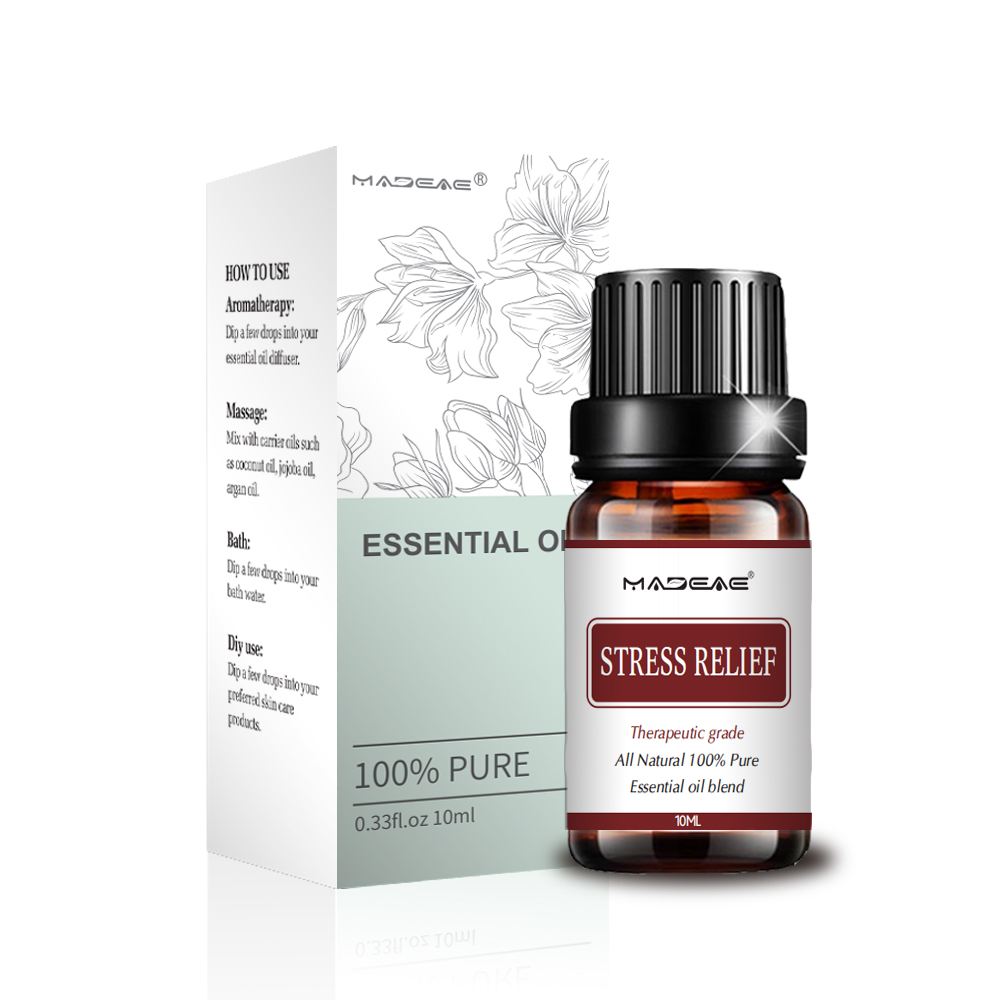
Private Label Stress Relief Essential Oil Blends with Sleep, Remove Anxiety
Description
Stress Relief is a bottle of “you can do this.” With a calming aroma with citrusy notes, Stress Relief can help decrease anxiety, depression and stress. These days, stress has become the number one killer. Don’t let that be you! Fight back against stress. We all deserve a little more serenity.
Stress relief is a balanced mixture of Sweet Orange, Bergamot, Patchouli, Grapefruit and Ylang Ylang. Made with care from our top quality oils and, as always, our essential oils are never diluted or mixed with additives.Diffuser Master Blend
Multiply your blend by 4 to obtain a total of 20 drops of your chosen blend. Add your oils to a dark colored glass bottle and mix well by rolling the bottle in between your hands. Add the appropriate number of drops from your created blend to your diffuser by following the manufacturer’s instructions for your diffuser brand and model. Some essential oils such as thick oils or citrus oils aren’t compatible with all diffuser types.
Benefits
- Relaxes, calms and soothes
- Can be used to combat and alleviate feelings of daily stress
- Reduces tension in the body
-
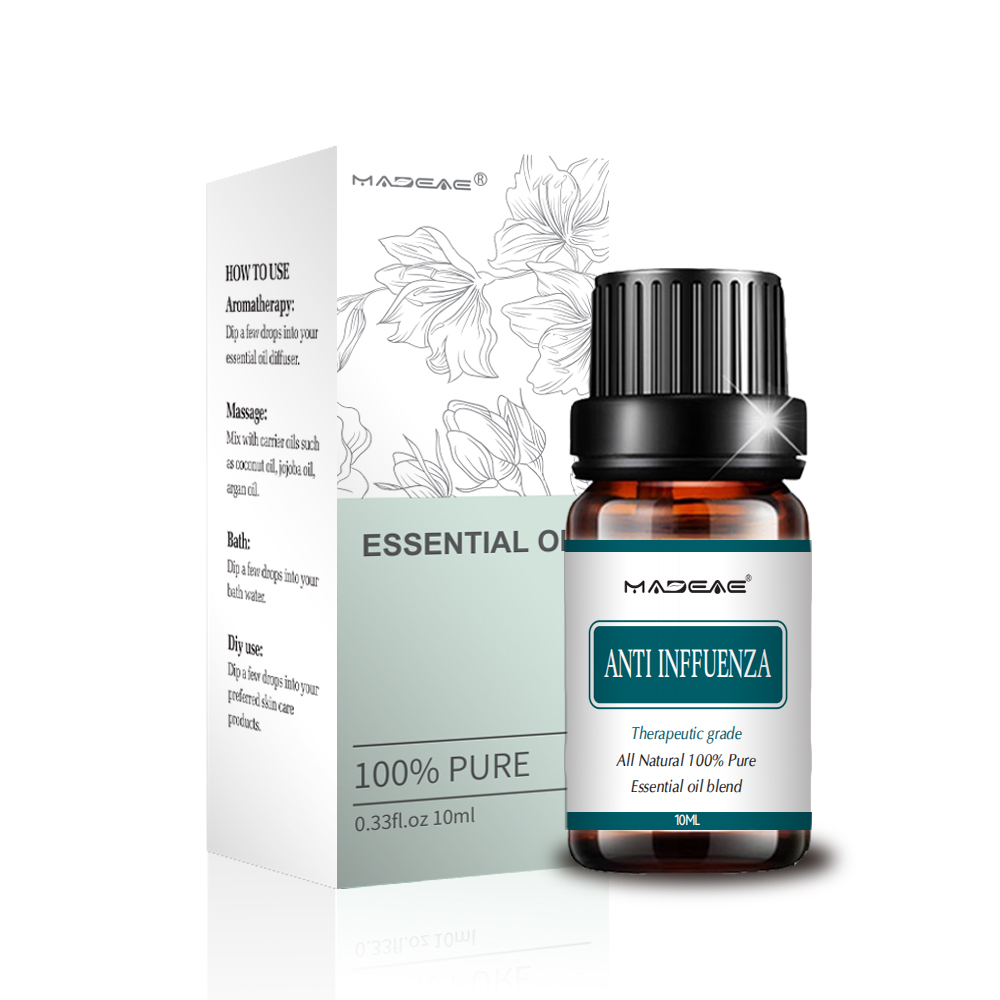
Therapeutic grade anti influenza blend essential oil 10ml OEM/ODM
Product Description
This powerful blend of essential oils has been designed to ward off conditions such as
Influenza, Bronchial Catarrh,
Throat Infections, Nasal Infections,
Severe Respiratory Infections,
Diffused into the atmosphere it has the ability to destroy, Fungi, Moulds, Bacteria and Viruses.
Diffuse the Anti-Influenza Blend regularly in the home and office and reduce the amount of Sinusitis, Head Colds, Influenza and Viral Infections experiences during winter.
100% Essential Oils used to Formulate our Powerful Anti-Flu Blend
Methods of Use
Bath – add up to 5 to 7 drops of Essential Oil Blend to a full bath with warm water. Agitate the water and soak for 20 mins. For sensitive skin types add 2 to 3 tablespoons of milk or soy milk, (if lactose intolerant).
Use only 1 to 2 drops for babies and children under 7 years of age and always add 2 to 3 tablespoons of milk or soy milk, (if lactose intolerant).
Foot Treatment – add up to 6 drops of Essential Oil Blend in Foot Spa. Soak feet for 10 minutes then dry and moisturise with Massage Oil Blend or Replenish Hand & Body Cream
Facial Treatment – Add 2 to 4 drops of Essential Oil Blend to 15ml of Massage Oil Blend. Massage into skin morning and night after cleansing and under your favourite Pure Destiny Skin care cream.
Hand Treatment – Add 2 to 4 drops of Essential Oil Blend into a bowl of warm water. Soak hands for 10 minutes. Dry and moisturise with Massage Oil Blend or Replenish Hand & Body Cream
-
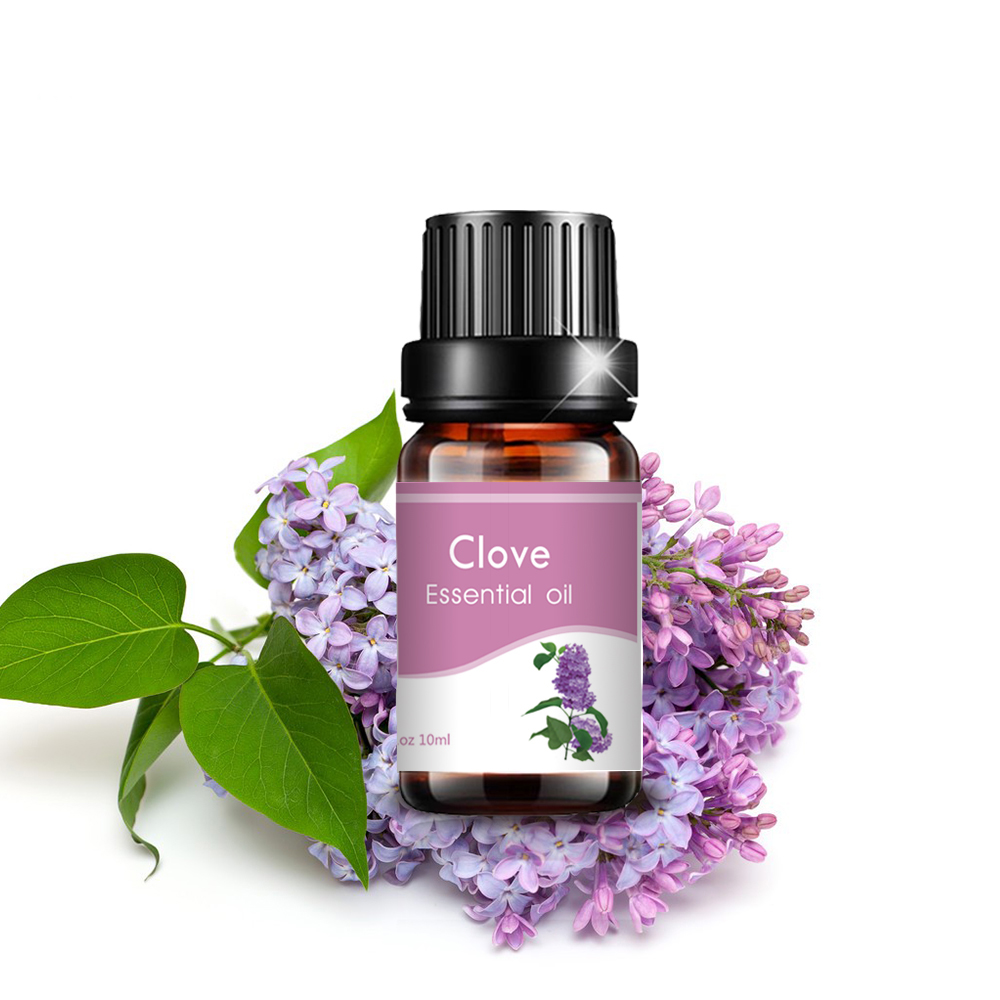
highest quality private label 100% pure and natural organic clove essential oil for massage
Clove oil uses range from dulling pain and improving blood circulation to reducing inflammation and acne.
One of the best-known clove oil uses is helping combat dental problems, such as toothaches. Even mainstream toothpaste makers, such as Colgate, agree that this can oil has some impressive abilities when it comes to supporting the help of your teeth, gums and mouth.
It’s been shown to act as a natural anti-inflammatory and pain reducer, in addition to having broad-spectrum antimicrobial/cleaning effects that extend to the skin and beyond.
Clove Oil for Toothache
Indigenous to Indonesia and Madagascar, clove (Eugenia caryophyllata) can be found in nature as the unopened pink flower buds of the tropical evergreen tree.
Picked by hand in late summer and again in winter, the buds are dried until they turn brown. The buds are then left whole, ground into a spice or are steam-distilled to produce concentrated clove essential oil.
Cloves are generally composed of 14 percent to 20 percent essential oil. The main chemical component of the oil is eugenol, which is also responsible for its strong fragrance.
In addition to its common medicinal uses (especially for oral health), eugenol is also commonly included in mouthwashes and perfumes, and it’s also employed in the creation of vanilla extract.
Why is clove used to decrease pain and swelling that comes with a toothache?
Eugenol is the ingredient within clove oil that provides pain relief. It’s the major constituent in the aromatic oil extracted from clove, accounting for between 70 percent and 90 percent of its volatile oil.
How can clove oil kill tooth nerve pain? It works by numbing the nerves in your mouth temporarily, lasting for about two to three hours, although it won’t necessarily solve an underlying issue, such as a cavity.
There’s reason to believe that the Chinese have been applying clove as a homeopathic remedy to ease toothache discomfort for over 2,000 years. While clove used to be ground and applied to the mouth, today clove essential oil is readily available and even more powerful due to its high concentration of eugenol and other compounds.
Clove is widely accepted as a reliable solution for dry socket and relieving the pain and discomfort associated with various dental disorders. The Journal of Dentistry, for instance, published a study demonstrating that clove essential oil had the same numbing effect as benzocaine, a topical agent commonly used before needle insertion.
Additionally, research suggests that clove oil has even more benefits for dental health.
Researches in charge of one study evaluated clove’s ability to slow tooth decalcification, or dental erosion, compared to eugenol, eugenyl-acetate, fluoride and a control group. Not only did clove oil lead the pack by significantly decreasing decalcification, but it was observed that it actually helped remineralize and strengthen teeth.
It may also help inhibit cavity-causing organisms, acting a preventative dental aid.
Here are some other interesting facts about clove/clove essential oil:
- The island of Zanzibar (part of Tanzania) is the world’s biggest producer of clove. Other top producers include Indonesia and Madagascar. Unlike most other spices, clove can be grown throughout the entire year, which has given native tribes that use it a distinct advantage over other cultures because the health benefits can be enjoyed more readily.
- History tells us that the Chinese have used clove for more than 2,000 years as a fragrance, spice and medicine. Cloves were brought to the Han Dynasty of China from Indonesia as early as 200 BC. Back then, people would hold cloves in their mouths to improve breath odor during audiences with their emperor.
- Clove oil has literally been a lifesaver at certain points in history. It was one of the main essential oils that protected people from getting the bubonic plague in Europe.
- The ancient Persians supposedly used this oil as a love potion.
- Meanwhile, Ayurvedic healers have long used clove to treat digestive issues, fever and respiratory problems.
- In Traditional Chinese Medicine, clove is highly acclaimed for its antifungal and antibacterial abilities.
- Today, clove oil continues to be used in numerous products for health, agricultural and cosmetic purposes.
-
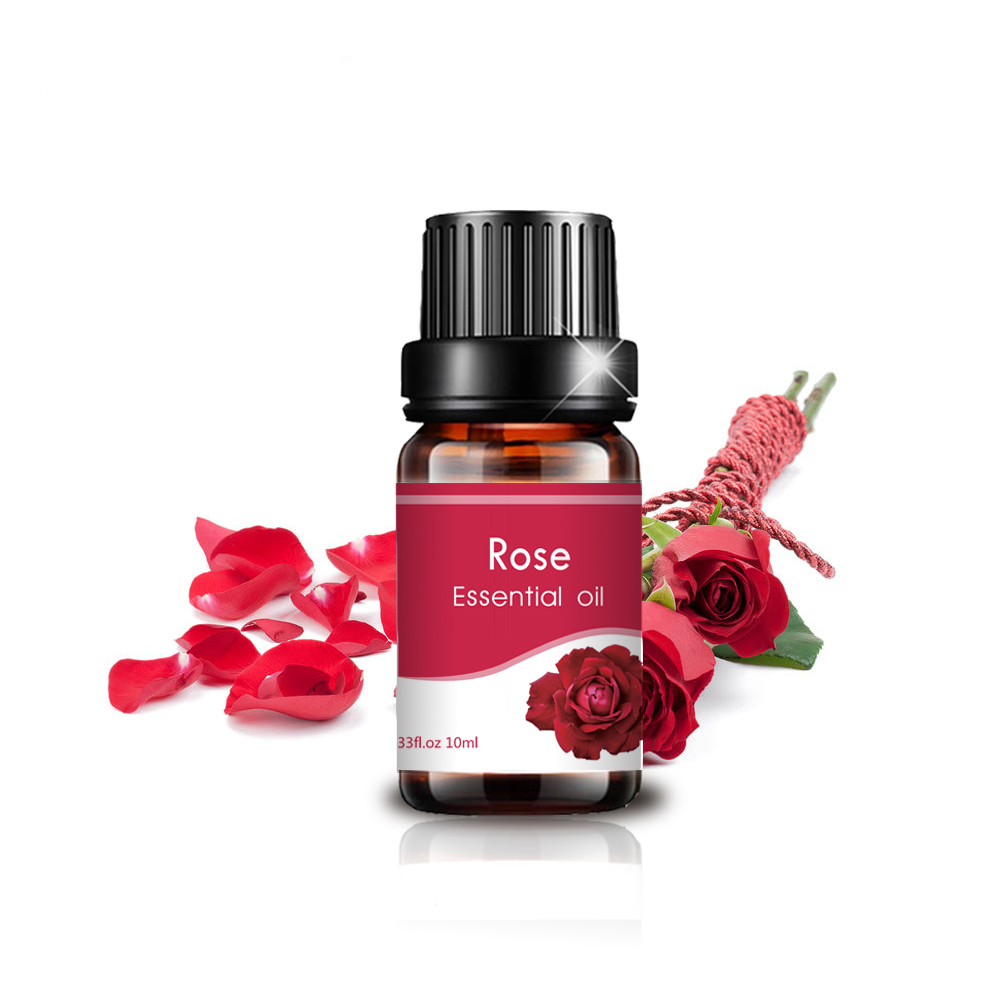
private label 100% pure natural rose essential oil massage hair face body oil multi-use
What Is Rose Essential Oil?
Where does rose essential oil come from? It most often comes from the damask rose (Rosa damascena) plant, but it can also come from the cabbage rose (Rosa centifolia) plant.
The oil is steam distilled from the flower petals. The oil distilled from damask roses is sometimes sold as Bulgarian rose oil or Bulgarian rose otto. Bulgaria and Turkey are the top producers of rose oil from the Rosa damascena plant.
Have you ever stopped to smell the roses? Well, the smell of rose oil will definitely remind you of that experience but even more enhanced. Rose essential oil has a very rich floral scent that is both sweet and slightly spicy at the same time.
Researchers have uncovered that rose essential oil contains several therapeutic compounds:
- Citronellol – effective mosquito repellant (also found in citronella).
- Citral – strong antimicrobial that is necessary for vitamin A synthesis (also found in lemon myrtle and lemongrass).
- Carvone – effective digestive aid (also found in caraway and dill).
- Citronellyl Acetate – responsible for the pleasant flavor and aroma of roses, which is why it’s in many skin and beauty products.
- Eugenol – also the powerhouse behind clove, the richest antioxidant in the world.
- Farnesol – natural pesticide (also found in orange blossom, jasmine and ylang-ylang).
- Methyl Eugenol – local antiseptic and anesthetic (also found in cinnamon and lemon balm).
- Nerol – sweet-smelling aromatic antibiotic compound (also found in lemongrass and hops).
- Phenyl Acetaldehyde – another sweet-smelling and aromatic compound (also found in chocolate).
- Phenyl Geraniol – natural form of geraniol, which is commonly in perfumes and fruit flavorings.
6 Rose Oil Benefits
1. Helps Depression and Anxiety
One of the top benefits of rose oil is definitely its mood-boosting abilities. As our ancestors battled situations where their mental status was dampened, or otherwise impaired, they would have been naturally drawn to the pleasant sights and smells of the flowers that surrounded them. For example, it is hard to take a whiff of a powerful rose and not smile.
The journal Complementary Therapies in Clinical Practice recently published a study that set out to prove these types of natural reactions when rose aromatherapy is used on human subjects experiencing depression and/or anxiety. With a subject group of 28 postpartum women, the researchers separated them into two groups: one who would be treated with 15-minute aromatherapy sessions using an essential oil blend consisting of rose otto and lavender twice a week for four weeks, and a control group.
Their results were quite remarkable. The aromatherapy group experienced “significant improvements” greater than the control group on both the Edinburgh Postnatal Depression Scale (EPDS) and Generalized Anxiety Disorder Scale (GAD-7). So not only did the women experienced significant decrease in postnatal depression scores, they also reported marked improvement in general anxiety disorder.
2. Fights Acne
There are many qualities of rose essential oil that make it a great natural remedy for the skin. The antimicrobial and aromatherapy benefits alone are great reasons to put a few drops in your DIY lotions and creams.
In 2010, researchers published a study uncovering that rose essential oil exhibited one of the strongest bactericidal activities compared to 10 other oils. Along with thyme, lavender and cinnamon essentials oils, rose oil was able to completely destroy Propionibacterium acnes (the bacteria responsible for acne) after only five minutes of a 0.25 percent dilution!
3. Anti-Aging
It’s no surprise that rose oil typically makes the list of top anti-aging essential oils. Why can rose essential oil boost skin health and possibly slow down the aging process? There are several reasons.
First, it has potent anti-inflammatory effects. In addition, it contains antioxidants that fight off free radicals which encourage skin damage and skin aging. Free radicals can cause damage to skin tissue, which results in wrinkles, lines and dehydration.
4. Boosts Libido
Because it acts as an anti-anxiety agent, rose essential oil can greatly help men with sexual dysfunction related to performance anxiety and stress. It may also help to balance sex hormones, which can contribute to increased sex drive.
A double-blind, randomized, placebo-controlled clinical trial published in 2015 looks at the effects of rose oil on 60 male patients with major depressive disorder experiencing sexual dysfunction as a result of taking conventional antidepressants known as serotonin-reuptake inhibitors (SSRIs).
The results are quite impressive! The administration of R. damascena oil improved sexual dysfunction in the male patients. In addition, the symptoms of depression reduced as sexual dysfunction got better.
5. Improves Dysmenorrhea (Painful Period)
A clinical study published in 2016 took a look at the effects of rose essential oil on women with primary dysmenorrhea. The medical definition of primary dysmenorrhea is cramping pain in the lower abdomen occurring just before or during menstruation, in the absence of other diseases being present such as endometriosis.
The researchers divided 100 patients into two groups, a group that receives a nonsteroidal anti-inflammatory drug and the other group also took the anti-inflammatory along with receiving aromatherapy that consisted of a two percent rose essential oil.
After 10 minutes, there were no significant differences between the two groups. After 30 minutes, the group that received rose aromatherapy reported less pain than the other group.
Overall, the researchers conclude, “The present study suggests that aromatherapy with rose essential oil, which is a nonpharmacologic treatment method, as an adjuvant to conventional treatment methods may be beneficial for pain relief in individuals with primary dysmenorrhea.”
6. Incredible Natural Perfume
The fragrance industry commonly used rose oil to create perfumes and to scent a variety of cosmetic products. With its sweet floral yet slightly spicy scent, rose essential oil can be used all by itself as a natural perfume. It only takes a drop or two and you can avoid all the fragrances on the market today that are loaded with dangerous synthetic scents.
-

high quality 10ml private label peppermint essential oil for massage air refresh
Peppermint oil is one of the most versatile essential oils out there. It can be used aromatically, topically and internally to address a number of health concerns, from muscles aches and seasonal allergy symptoms to low energy and digestive complaints.
It’s also commonly used to boost energy levels and improve both skin and hair health.
A review conducted by the U.S. Department of Agriculture Human Nutrition Research Center on Aging at Tufts University found that peppermint has significant antimicrobial and antiviral activities. It also:
- works as a strong antioxidant
- displays anti-tumor actions in lab studies
- shows anti-allergenic potential
- has pain-killing effects
- helps relax the gastrointestinal tract
- may be chemopreventive
It’s no wonder why peppermint oil is one of the most popular essential oils in the world and why I recommend that everyone has it in his or her medicine cabinet at home.
What Is Peppermint Oil?
Peppermint is a hybrid species of spearmint and water mint (Mentha aquatica). The essential oils are gathered by CO2 or cold extraction of the fresh aerial parts of the flowering plant.
The most active ingredients include menthol (50 percent to 60 percent) and menthone (10 percent to 30 percent).
Forms
You can find peppermint in several forms, including peppermint essential oil, peppermint leaves, peppermint spray and peppermint tablets. The active ingredients in peppermint give the leaves their invigorating and energizing effects.
Menthol oil is commonly used in balms, shampoos and other body products for its beneficial properties.
History
Not only is peppermint oil one of the oldest European herbs used for medicinal purposes, but other historical accounts date its use to ancient Japanese and Chinese folk medicine. It’s also mentioned in Greek mythology when the nymph Mentha (or Minthe) was transformed into a sweet-smelling herb by Pluto, who had fallen in love with her and wanted people to appreciate her for years to come.
The many peppermint oil uses have been documented back to 1000 B.C. and have been found in several Egyptian pyramids.
Today, peppermint oil is recommended for its anti-nausea impacts and soothing effects on the gastric lining and colon. It’s also valued for its cooling effects and helps relieve sore muscles when used topically.
In addition to this, peppermint essential oil displays antimicrobial properties, which is why it can be used to fight infections and even freshen your breath. Pretty impressive, right?
Top Uses and Benefits
Some of the many uses and benefits of peppermint oil include:
1. Relieves Muscle and Joint Pain
If you are wondering if peppermint oil is good for pain, the answer is a resounding “yes!” Peppermint essential oil is a very effective natural painkiller and muscle relaxant.
It also has cooling, invigorating and antispasmodic properties. Peppermint oil is especially helpful in alleviating a tension headache. One clinical trial indicates that it performs as well as acetaminophen.
Another study shows that peppermint oil applied topically has pain relief advantages associated with fibromyalgia and myofascial pain syndrome. Researchers found that peppermint oil, eucalyptus, capsaicin and other herbal preparations may be helpful because they work as topical analgesics.
To use peppermint oil for pain relief, simply apply two to three drops topically to the area of concern three times daily, add five drops to a warm bath with Epsom salt or try a homemade muscle rub. Combining peppermint with lavender oil is also a great way to help your body relax and reduce muscle pain.
2. Sinus Care and Respiratory Aid
Peppermint aromatherapy can help unclog your sinuses and offer relief from a scratchy throat. It acts as a refreshing expectorant, helping open your airways, clear mucus and reduce congestion.
It also is one of the best essential oils for colds, the flu, cough, sinusitis, asthma, bronchitis and other respiratory conditions.
Lab studies show that the compounds found in peppermint oil have antimicrobial, antiviral and antioxidant properties, meaning it may also help fight infections that lead to symptoms involving the respiratory tract.
Mix peppermint oil it with coconut oil and eucalyptus oil to make my homemade vapor rub. You can also diffuse five drops of peppermint or apply two to three drops topically to your temples, chest and back of neck.
3. Seasonal Allergy Relief
Peppermint oil is highly effective at relaxing muscles in your nasal passages and helping clear out the muck and pollen from your respiratory tract during allergy season. It’s considered one of the best essential oils for allergies because of its expectorant, anti-inflammatory and invigorating properties.
A lab study published in the European Journal of Medical Research found that peppermint compounds displayed potential therapeutic efficacy for the treatment of chronic inflammatory disorders, such as allergic rhinitis, colitis and bronchial asthma.
To help relieve seasonal allergies symptoms with your own DIY product, diffuse peppermint and eucalyptus oil at home, or apply two to three drops of peppermint topically to your temples, chest and back of neck.
-

10ml private label lavender for massage skincare sleep well stress relieve
Lavender essential oil is the most used essential oil in the world today, but the benefits of lavender were actually discovered over 2,500 years ago. Because of its powerful antioxidant, antimicrobial, sedative, calming and antidepressive properties, lavender oil perks abound, and it’s been used both cosmetically and therapeutically for centuries.
The Egyptians used lavender for mummification and as a perfume. In fact, when King Tut’s tomb was opened in 1923, there was said to be a faint scent of lavender that could still be detected after 3,000 years.
Early and modern aromatherapy texts advocate for lavender’s use as an antibacterial essential oil. The leaves and stems of the plant were used to prepare decoctions against digestive system diseases and rheumatism, and lavender was valued for its cosmetic purposes.
Research shows that the Romans used lavender oil for bathing, cooking and purifying the air. In the Bible, lavender oil was among the aromatics used for anointing and healing.
Because lavender oil contains such versatile properties and is gentle enough to use directly to the skin, it’s consider a must-have oil, especially if you are just getting started with using essential oils for your health. Science has only recently started to evaluate the range of health effects that lavender essential oil contains, but there’s already an abundance of evidence that points out the amazing capabilities of this oil.
Today, lavender is one of the most popular essential oils in the world — and for good reason. People are beginning to catch on to lavender oil benefits for your body as well as your home.
Lavender Oil Benefits
1. Antioxidant Protection
Free radicals, like toxins, chemicals and pollutants, are arguably the most dangerous and most common risk factor for every disease that affects Americans today. Free radicals are responsible for shutting down your immune system and can cause unbelievable damage to your body.
The body’s natural response to free radical damage is to create antioxidant enzymes — especially glutathione, catalase and superoxide dismutase (SOD) — that stop these free radicals from doing their damage. Unfortunately, your body can actually become deficient in antioxidants if the free radical burden is great enough, which has become relatively common in the U.S. because of poor diet and high exposure to toxins.
Thankfully, lavender is a natural antioxidant that works to prevent and reverse disease. A 2013 study published in Phytomedicine found that it increased the activity of the body’s most powerful antioxidants — glutathione, catalase and SOD. More recent studies have indicated similar results, concluding that lavender has antioxidant activity and helps prevent or reverse oxidative stress.
2. Helps Treat Diabetes
In 2014, scientists from Tunisia set out to complete a fascinating task: to test the effects of lavender on blood sugar to see if it can help reverse diabetes naturally.
During the 15-day animal study, the results observed by researchers were absolutely amazing. In a nutshell, lavender essential oil treatment protected the body from the following diabetes symptoms:
- Increased blood glucose (the hallmark of diabetes)
- Metabolic disorders (especially fat metabolism)
- Weight gain
- Liver and kidney antioxidant depletion
- Liver and kidney dysfunction
- Liver and kidney lipoperoxidation (when free radicals “steal” necessary fat molecules from cell membranes)
Although more research is needed to understand the full capacity of lavender for the prevention or reversal of diabetes, the results of this study are promising and indicate the therapeutic potential of the plant extract. To use it for diabetes, use it topically on your neck and chest, diffuse it at home, or supplement with it.
3. Improves Mood and Reduces Stress
In recent years, lavender oil has been put on a pedestal for its unique ability to protect against neurological damage. Traditionally, lavender has been used to treat neurological issues like migraines, stress, anxiety and depression, so it’s exciting to see that the research is finally catching up to history.
There are several studies showing the plant’s effects on stress and anxiety levels. A study from 2019 found that inhaling Lavandula is one of the most powerful anxiolytic oils, as it reduces peri-operative anxiety and can be considered a potential sedative for patients undergoing surgical procedures and anesthesia.
In 2013, an evidence-based study published by the International Journal of Psychiatry in Clinical Practice found that supplementing with 80-milligram capsules of lavender essential oil help alleviate anxiety, sleep disturbance and depression. Additionally, in the study there were no adverse side effects, drug interactions or withdrawal symptoms from using lavender oil.
The International Journal of Neuropsychopharmacology published a human study in 2014 that revealed that Silexan (otherwise known as lavender oil preparation) was more effective against generalized anxiety disorder than placebos and the prescription medicine paroxetine. After treatment, the study found zero instances of withdrawal symptoms or adverse side effects.
Another study published in 2012 involved 28 high-risk postpartum women and noted that by diffusing lavender in their homes, they had a significant reduction of postnatal depression and reduced anxiety disorder after a four-week treatment plan of aromatherapy.
Lavender has also been shown to improve PTSD symptoms. Eighty milligrams of lavender oil per day helped decrease depression by 33 percent and dramatically decrease sleep disturbances, moodiness and overall health status in 47 people suffering from PTSD, as shown in a phase two trial published in Phytomedicine.
To relieve stress and improve sleep, put a diffuser by your bed, and diffuse oils while you sleep at night or in the family room while you’re reading or winding down in the evening. You can also use it topically behind your ears for similar results.













